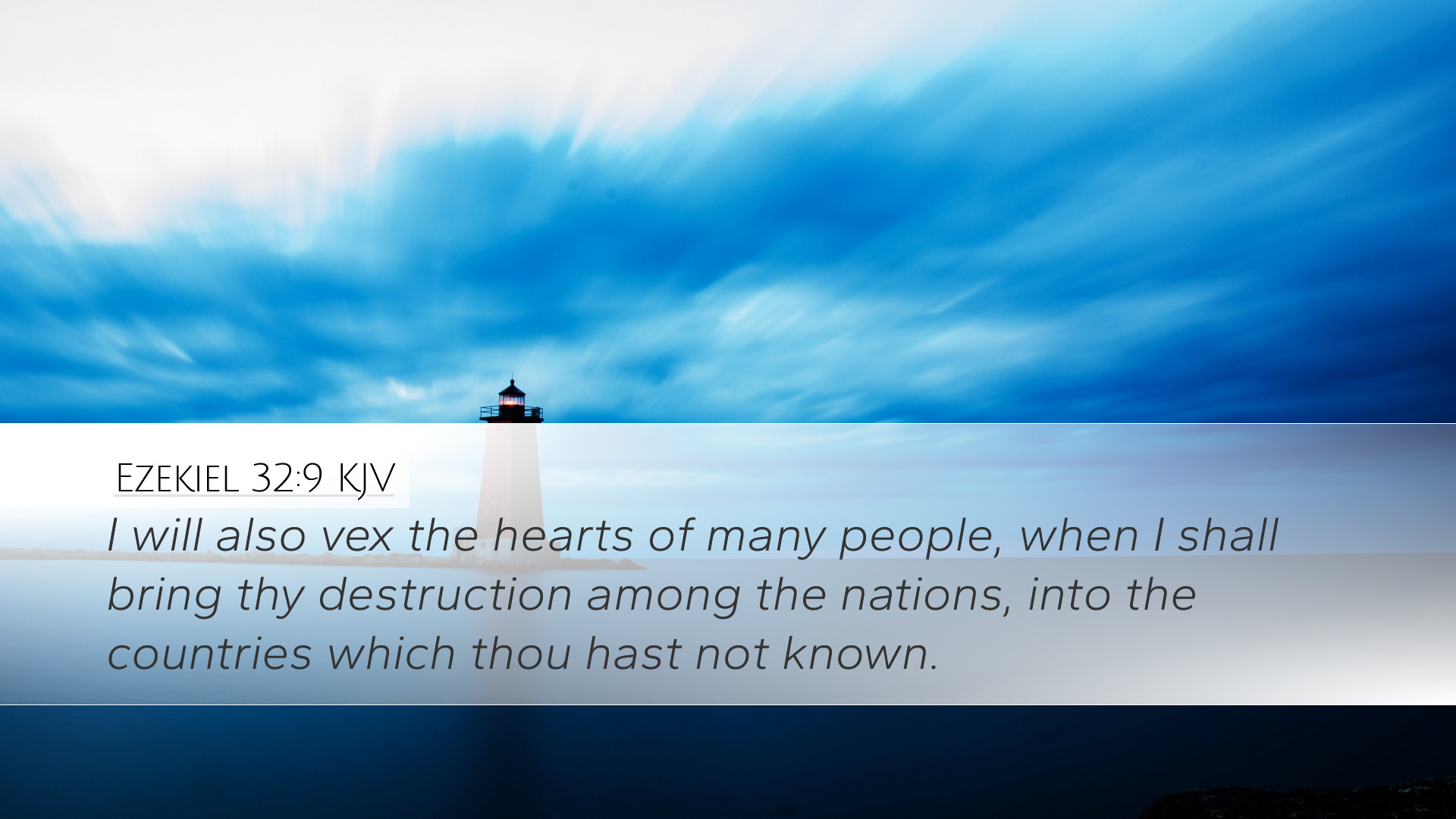Ezekiel 32:9 Commentary
Verse: "I will also vex the hearts of many people, when I shall bring thy destruction among the nations, into the countries which thou hast not known." (Ezekiel 32:9)
Contextual Background
This passage occurs within a broader prophetic discourse in Ezekiel, primarily addressing the fall of Egypt and its ramifications on other nations. Ezekiel, acting as the mouthpiece of God, speaks about divine judgment, destruction, and its consequential emotional impact on other peoples.
Theological Reflections
This verse encapsulates the theme of divine sovereignty and judgment. It underscores that the fall of nations is not merely a historical event but carries profound implications on a global scale.
Emotional Consequences of God’s Judgment
According to Matthew Henry, the text reveals that the destruction of a mighty nation like Egypt would send ripples through the emotional fabric of surrounding nations. The 'vexation' mentioned signifies a deep emotional disturbance. Henry elaborates that such events serve as wake-up calls to those who observe and reflect upon the might of God as He brings low the proud. The awareness of Egypt's downfall would cause fear and dread among the nations, provoking them to consider their own standing before God.
The Role of the Prophet
Albert Barnes emphasizes the role of Ezekiel as a prophet in conveying God’s message. His insights suggest that the destruction of Egypt serves not only as punishment for its sins but also as a lesson to other nations. Ezekiel is tasked with warning the nations against pride and rebellion. The emotional turmoil referenced here can be seen as God's methods to instill humility in the hearts of other nations, prompting them to reflect on their relationship with Him.
National Identity and Divine Justice
Adam Clarke provides a reflection on national identity, suggesting that each nation is shaped by its relationship with God. The mention of "countries which thou hast not known" indicates the far-reaching impact of God's judgment. Clarke states that even those unfamiliar with Egypt will experience a sense of alarm and recognition of the power of God over nations. This emphasizes that God’s judgment extends beyond geographic and cultural boundaries. Clarke notes that the reverberation of Egypt's fall acknowledges that God's sovereignty transcends all nations.
Applications for Pastoral Ministry
This verse offers rich insights for pastoral care and preaching. It emphasizes the importance of humility before God, and the need for congregations to understand the implications of divine judgment. Here are some practical applications:
- Encouragement Against Complacency: Remind congregants not to become complacent in their faith, for judgment can come unexpectedly.
- Call to Repentance: Use this passage as a call to self-examination and repentance, focusing on personal and communal sin.
- Reflection on Sovereignty: Teach about God’s sovereignty and how His judgments are meant to realign nations and individuals with His will.
Conclusion
In conclusion, Ezekiel 32:9 serves as a poignant reminder of the dynamics between divine judgment and its effects on the hearts of individuals and nations. Through the insights of Matthew Henry, Albert Barnes, and Adam Clarke, we see the profound implications of God's action against Egypt not just as a historical event, but as a powerful teaching moment that stirs the hearts of all nations. For pastors, this passage invites them to engage their congregations with the seriousness of God's sovereignty and the transformative power of repentance and humility.


